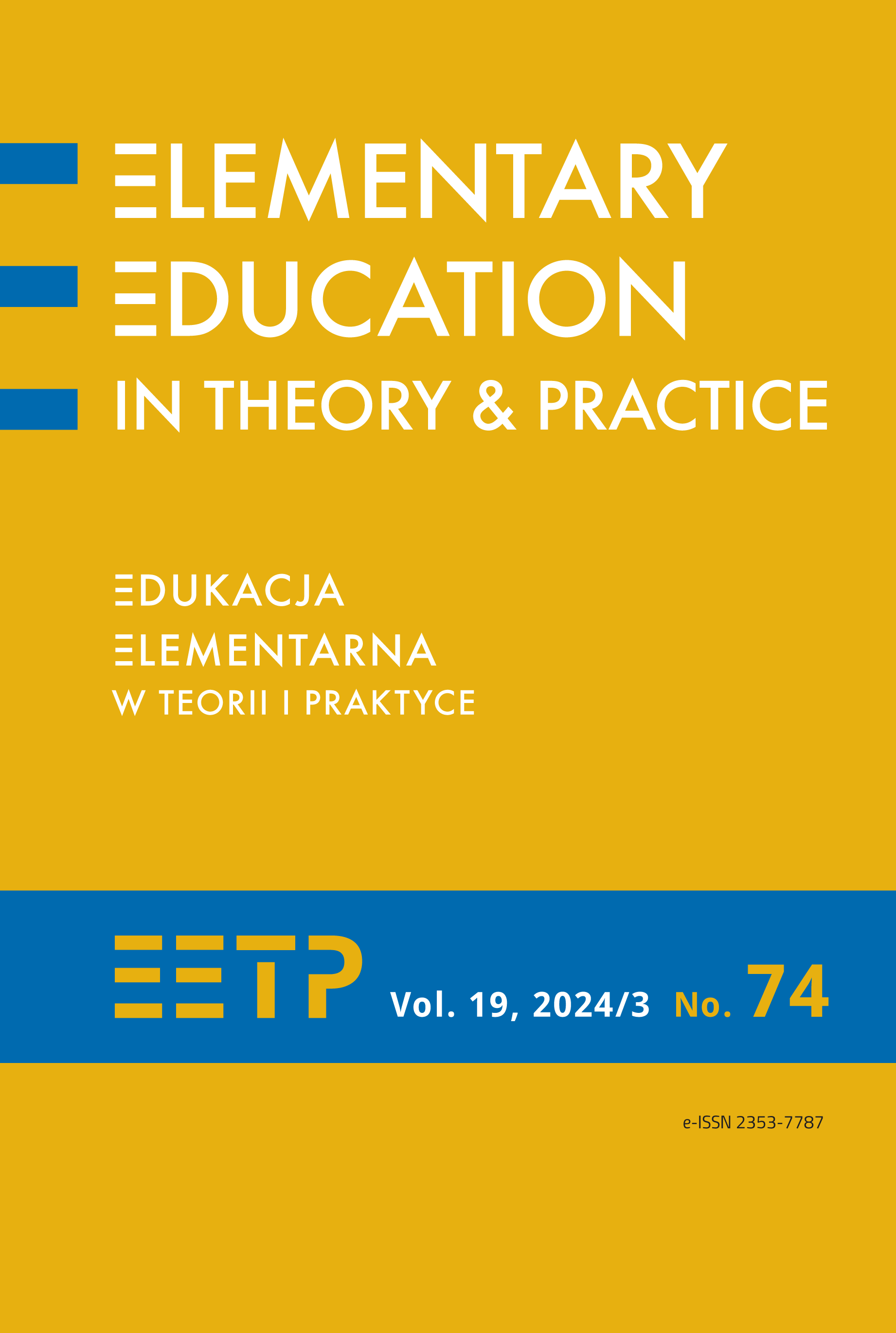Wprowadzenie
Abstrakt
From East to West and North to South, no countries in the world do not have lullabies or nursery rhymes. These are the infused forms of music and literature that the humans are exposed to right from birth or as embryos. The interplay between music and literature is a significant cultural phenomenon that has shaped human expression and communication across space and time. Both forms of expression offer rich avenues for emotional expression, storytelling, and cultural transmission. In educational settings, particularly in primary education, the integration of literature and music offers a powerful tool for cognitive and language development, cultural literacy, and emotional growth (Hallam, 2010). This introductory essay examines the relationship between literature in music and music in literature and discusses how these interactions contribute to language and literacy development and the broader educational experience of young children.
Bibliografia
Gardiner, M. F., Fox, A., Knowles, F., & Jeffrey, D. (1996). Learning improved by arts training. Nature, 381(6580), 284.
Goswami, U., & Bryant, P. (2016). Phonological skills and learning to read. Routledge.
Hallam, S. (2010). The power of music: Its impact on the intellectual, social and personal development of children and young people. International Journal of Music Education, 28(3), 269-289.
Ngo, T., Hood, S., Martin, J. R., Painter, C., Smith, B., & Zappavigna, M. (2022). Modelling paralanguage from the perspective of Systemic Functional Semiotics: Theory and application. London: UK: Bloomsburry.
Ngo, T., & Unsworth, L. (forthcoming). Digital Multimodal Adaptations of Children’s Literature: Semiotic Analyses and Classroom Applications: Routledge.
Copyright (c) 2024 Edukacja Elementarna w Teorii i Praktyce

Utwór dostępny jest na licencji Creative Commons Uznanie autorstwa – Bez utworów zależnych 4.0 Międzynarodowe.
1. Autor zgłaszając swój artykuł oświadcza, że jest Autorem artykułu (zwanego dalej Utworem) i:
- przysługują mu wyłączne i nieograniczone prawa autorskie do Utworu,
- jest uprawniony/a do rozporządzania prawami autorskimi do Utworu.
Oświadcza, że nie narusza praw autorskich osób trzecich i praw prawnych.
Oświadcza, że nie występuje żaden konflikt interesów.
2. Udziela Uniwersytetowi Ignatianum w Krakowie nieodpłatnej, niewyłącznej, nieograniczonej terytorialnie licencji do korzystania z Utworu na następujących polach eksploatacji:
- utrwalania utworu w formie papierowej, a także na nośniku cyfrowym lub magnetycznym;
- zwielokrotnienia utworu dowolną techniką, bez ograniczenia ilości wydań i liczby egzemplarzy;
- rozpowszechniania utworu i jego zwielokrotnionych egzemplarzy na jakimkolwiek nośniku, w tym wprowadzenia do obrotu, sprzedaży, użyczenia, najmu;
- wprowadzenia utworu do pamięci komputera;
- rozpowszechniania utworu w sieciach informatycznych, w tym w sieci Internet;
- publicznego wykonania, wystawienia, wyświetlenia, odtworzenia oraz nadawania i reemitowania, a także publicznego udostępniania utworu w taki sposób, aby każdy mógł mieć do niego dostęp w miejscu i czasie przez siebie wybranym;
- w zakresie praw zależnych do Utworu, obejmujących w szczególności prawo do dokonania koniecznych zmian w Utworze, wynikających z opracowania redakcyjnego i metodycznego, a także do dokonania tłumaczenia Utworu na języki obce.
Udzielenie licencji następuje z chwilą przekazania Utworu na rzecz Uniwersytetowi Ignatianum w Krakowie. Uniwersytet Ignatianum w Krakowie jest uprawniony do udzielania dalszych sublicencji do Utworu, w zakresie udzielonego prawa. Licencja jest ograniczona czasowo i zostaje udzielona na okres 15 lat, licząc od daty jej udzielenia.
Wyraża się zgodę i zachęca autorów do publikacji ich tekstu w Internecie (np. w repozytorium instytucji lub na jej stronie internetowej) przed lub podczas procesu składania tekstu jako, że może to prowadzić do korzystnych wymian oraz wcześniejszego i większego cytowania opublikowanego tekstu (Patrz The Effect of Open Access). Zalecamy wykorzystanie dowolnego portalu stowarzyszeń badawczych z niżej wymienionych:




